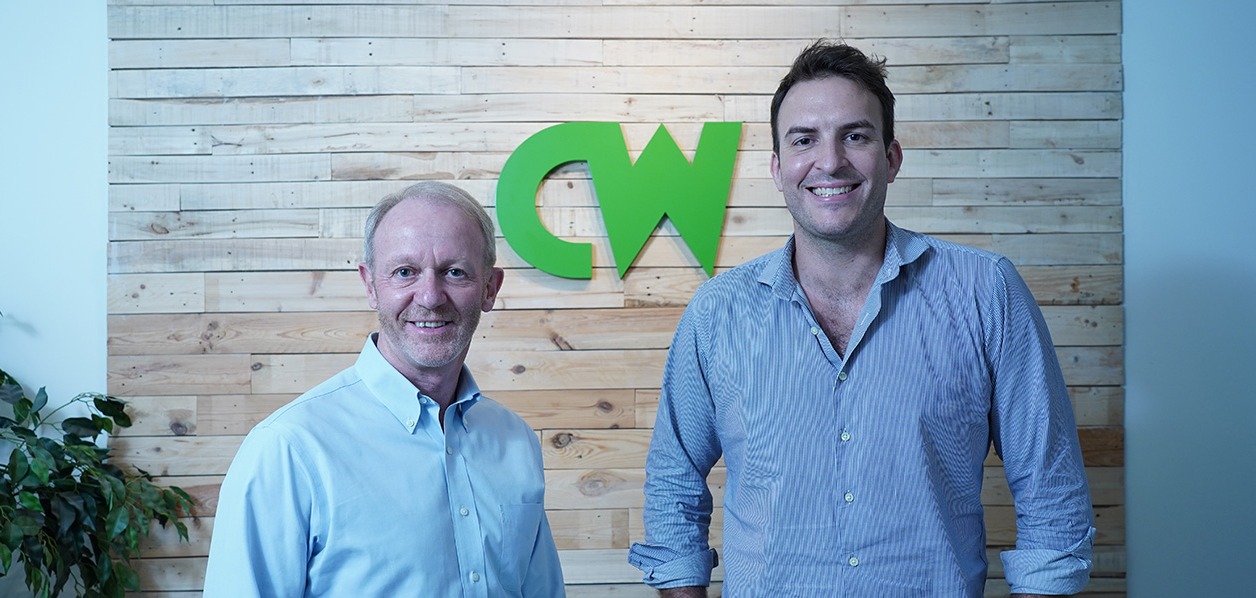Generating value through innovation
Amid one of the worst downturns in aviation history, IPI Innovation Advisor Derek Sharples helped CW Aero Services to implement new business strategies, restructure internal processes and emerge stronger.
As borders closed to mitigate the spread of the coronavirus in 2020, the aviation industry saw one of its worst years yet. Global passenger traffic plunged by 66 percent and demand for air cargo slumped, with airlines from the Asia-Pacific region harder hit compared with their Western counterparts.
Against this backdrop, Singapore-based aerospace service provider and equipment supplier CW Aero Services Pte Ltd had to diversify its offerings with more sustainable and value-adding activities. From boosting the company’s after-sales support to innovative asset-enhancing services that tapped on the latest Internet of Things (IoT) technology, Managing Director Julien Valette and Director of Operations David Trial had plenty of ideas on how to bring their business to the next level but lacked a strategic direction and implementation roadmap to actualise these plans.
Through the IPI Innovation Advisors Programme, Valette and his team were able to draw on Innovation Advisor Derek Sharples’ 35 years of experience in the aviation industry to come up with more comprehensive plans for change.
Pursuing a new business opportunity through IoT solutions
Currently, CW Aero distributes and manufactures aerospace equipment while providing after-sales maintenance, repair and overhaul (MRO) services. Witnessing the rise of IoT technology in the aerospace industry in recent years, Valette wanted to add yet another offering to the company’s repertoire: IoT solutions, where plug-and-play sensors would be integrated with their existing MRO services to improve the efficiency of customers’ assets.
While the IoT solution was a promising addition, pursuing this new market required further adjustments to the business model such as determining the fees, design and coverage of the service. To this end, Sharples offered advice on crafting the scope of the new contracts and negotiating key requirements with customers, while introducing potential technology collaborators from his extensive network within the aerospace industry.
Wearing several hats during the consulting sessions with CW Aero came naturally for Sharples, whose career has spanned across technical support, product development, marketing, logistics and governance roles. His decades of experience in aviation and aerospace corporations in Asia, Europe and North America, culminating in his latest role as CEO for Airbus Helicopters Southeast Asia, have also provided him with in-depth insights on business practices and partnerships with both local and overseas entities.
Aligning company structure with strategy
With CW Aero rapidly expanding its offerings and shifting towards a more service-oriented strategy, Valette and team had to rethink the firm’s internal organisation. With Sharples’ encouragement, the company adopted a matrix organisation structure, where personnel were divided according to both job function—such as sales, services or engineering—and the type of equipment they specialised in, such as component testing, ground support or MRO tools. Not only did this approach allow the company to form dedicated teams for each aspect of the business, it also gave each member a definitive and focused work scope.
By enabling each employee to concentrate on certain kinds of equipment and services, the matrix structure favoured a customer-centric approach and decentralised decision making, shared Sharples. “This organisation structure reduces the number of decisions made by the boss and invites the staff to take responsibility for their own activities,” he explained, adding that this would in turn ease Valette’s workload to focus on more strategic planning.
As part of a young management team, Valette had initially felt overwhelmed by the changes in strategic direction and the implementation complexities this entailed. “As a manager of an SME, life is basically multitasking and firefighting,” he said. “The final trigger was the pandemic—we had to react and take actions to transform, to get through the crisis and get ready to restart in a changed environment.”
As part of its efforts to uplift local SMEs and start-ups, the IPI Innovation Advisors Programme helped CW Aero find its footing as it overhauled its business strategy and internal organisation. “Having an industry veteran with us helped to pull our head out of the water, refocus our priorities, and actually firm up a new strategic plan and roadmap,” Valette concluded.
Is your company developing a new product or service? Enhance your management techniques and achieve your strategic objectives with help from an IPI Innovation Advisor.
About the Featured IPI Innovation Advisor, Derek Sharples
|
|
Derek Sharples is an Independent Non-Executive Director of Avation Plc, a London stock exchange-listed company, headquartered in Singapore. He is also an investor and an Advisory Board Member to several Singapore start-ups and SMEs in composite manufacturing, artificial intelligence, e-commerce, unmanned drones and surface finishing.
|
About the IPI Innovation Advisors Programme
IPI instituted the Innovation Advisors Programme, in partnership with Enterprise Singapore (ESG), in late 2019 to enable business transformation among small and medium enterprises (SMEs) as they embark on product, process or business model advancements. A pool of Innovation Advisors, who are experienced industry veterans with strong technology expertise, connections and business acumen, will be able to help these companies achieve accelerated growth.


